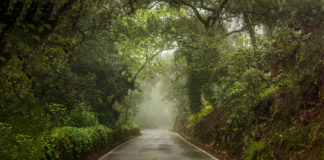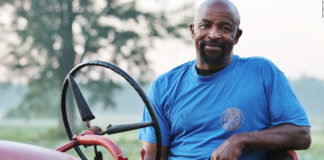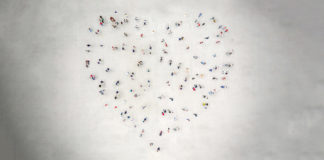Are you gifted?
There’s something lying on a massive table. It’s a huge picture. You move closer and see that the design is made up of individual pieces, like a jigsaw puzzle. But the pattern is unusual. It isn’t an immediately recognisable image, such as a Swiss mountain or a bouquet of tulips.
COVID-19: The pandemic that transforms us into different people
In Europe, one in twenty people suffer from depression, and one in four will experience depression during their lifetime. In the United States, major depressive disorder affects about five percent of the population.
Family on 35mm film
We love stories, and Hollywood knows how to dramatise them. However, we should not lose sight of the fact that Hollywood is first and foremost an industry driven by ratings and profits. Children are more vulnerable and more likely than adults to pick up identity models from the film world.
How much do the origins of our errors in judgement matter?
An article in the New Yorker[1] explains why we tend to not change our convictions, not even when faced with contrary evidence.
The fascination of eternal freedom in a communist regime
The biggest surprise of 1989 was the speed with which the communist regimes in Europe collapsed. Their collapse occurred as quickly as their establishment. Two personalities played an undeniable role in undermining a communist regime that seemed to be eternal.
The Bible as a sign of offence
“‘The days are coming,’ declares the Sovereign Lord, ‘when I will send a famine through the land—not a famine of food or a thirst for water, but a famine of hearing the words of the Lord. People will stagger from sea to sea and wander from north to east, searching for the word of the Lord, but they will not find it’” (Amos...
Planted—and growing
One of the most overused metaphors for our human experience of life is that of the journey.
How I came to believe
I was a pagan as a child. Not by choice, but as a consequence of lacking any access to the Word of God. In the 1980s Romania, catechizing an Orthodox child (whose parents were members of the Communist Party) was a highly unlikely event Pavlik Morozov’s myth, the hero-child that denounced his own father, generated caution.
Faith that sees the miracle
I spent the end of high school in the Scandinavian school system. There, the teenager is confronted with the great questions of mankind in the context of social disciplines
Lessons from the radiotherapy room
Lying on my back, naked except for a sheet draped over my lower body, arms tucked behind my head, I’m feeling vulnerable and exposed. The radiotherapist leaves the room. I’m all alone. I begin to panic as I anticipate the beams of radiation about to penetrate my skin.
Food for life
A lot is said and written about food, and a fair share of the promises we make are related to it. We might decide to eat more healthfully or perhaps we wish to diminish food waste. Unfortunately, our promises are often quickly forgotten, because destructive habits are hard to forsake. There are, however, people who have found ways to transform not just their...
The little secret that carries us further
The TV-series Friends was recently reviewed in The New York Times as “enormously easy to watch”. This characteristic however does not make the show unique, nor can it account for its popularity today, more than 15 years since its final episode.
Dusty mirrors in a cynical world
In a cynical world, just as certain otherwise healthy nutrients could cause cancer, correct formulations develop cynicism because they are easily suspected of hypocrisy. In order to believe again, cynics need different, experiential perspectives.
The paradox of independence: freedom at the cost of connection
The controversial story of Baruch Spinoza takes on a fascinating dimension with the explosive excommunication from the Jewish community decreed by the leaders of the Portuguese Sephardic community in Amsterdam—a decision accompanied by one of the most severe anathemas. This document made Spinoza one of the most reviled philosophers by both Jews and Christians, but attitudes towards him began to change after the...
Ship your grain across the sea…you may receive a return
When we help someone without expecting anything in return, we often forget both the recipient and the gift. But God does not forget, and fulfils—at just the right time—the promise found in the verse that provides the title of this article. He did the same in my case.


























